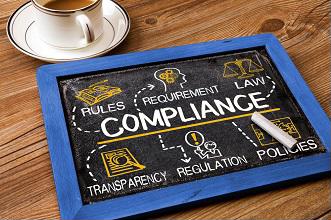The election season might have ended, but discussions regarding national mandates, regulations and enforcement of campaign finance remain highly active. The Federal Election Commission has had an extremely busy year, and it appears, based on the media storm, that it will continue to have a lot of work to do through the next two years. Legislators, educators and the general public are all getting involved in the fight to reform campaign finance regulations before the midterm elections come to pass.
Let's take a look at some of the biggest stories in federal campaign finance from the past couple of weeks.
"Everyone seems to desire campaign finance reform."
The Trump impact
All eyes are on President-Elect Donald Trump, as his campaign promised to "drain the swamp," meaning invoking far more stringent legislation to transform elections, terms and more within the legislative branch. Some believe he will follow through on these guarantees, while others are not so sure.
Roll Call reported there might be a higher likelihood of Trump loosening campaign finance laws, and getting the job done on that front thanks to the Republican-held Congress behind him. Such changes, should they occur, would allow donors to contribute more than ever before and alleviate some of the strains of accounting and registration political action committees currently experience.
"You can expect the Republicans to be very aggressive in lifting a lot of the regulations that are currently not only on political parties but on the system generally," attorney James Bopp Jr., a proponent of deregulating campaign finance, told Roll Call. "Everybody agrees the system is dysfunctional, but that is caused by the legal restrictions."
Vox is in agreement with this thesis, affirming Trump will not be the only one in Washington, D.C. looking to reduce the amount of controls placed on campaign contributions through the next two years. According to the news provider, several key Republicans such as Senate Majority Leader Mitch McConnell have been fighting for deregulation for years and might be able to achieve these goals now that the GOP possesses a majority in both houses of Congress, as well as the lead position in the Executive Branch.
PACs will want to watch Capitol Hill closely in the next year, as analysts expect some major changes to occur right after Inauguration Day in January. Those changes will, most likely, not include Citizen's United being, as the GOP will also appoint a Supreme Court Justice to fill the long-since-vacated seat of late Justice Antonin Scalia.
Complaints flood in
One of the more notable complaints filed to the FEC since the end of the election was against Stephen Bannon, who is expected to act as Trump's senior White House adviser, Salon reported. The news provider explained the FBI is fielding this particular allegation and conducting an investigation to see if Bannon did indeed use PAC funds illegally.
According to Salon, the Democratic Coalition Against Trump alleged that Bannon received payments from the PAC while simultaneously being employed by the campaign. The news provider pointed out that super PACs are not allowed to directly interact with the campaigns they support, and Bannon was acting as the candidate's campaign chief executive officer at the time the PAC paid his business. The Democratic Coalition Against Trump is using FEC records that allegedly show the super PAC paid nearly $1 million to Glittering Steel LLC, which happens to be Bannon's company.
Should the allegations be verified, they would constitute two breaches of campaign finance law. The first would involve Bannon's simultaneous involvement in both the PAC and campaign and the second would be the PAC's direct contact with the campaign.
At the end of the day, PAC Treasurers and Administrators must make themselves aware of the laws PACs are required to follow in order to stay clear of investigations and bad press. Failure to do so can lead to significant fines and damaged credibility which is never a good prospect when your entity's sole purpose is to raise funds and donate those funds to political campaigns.

